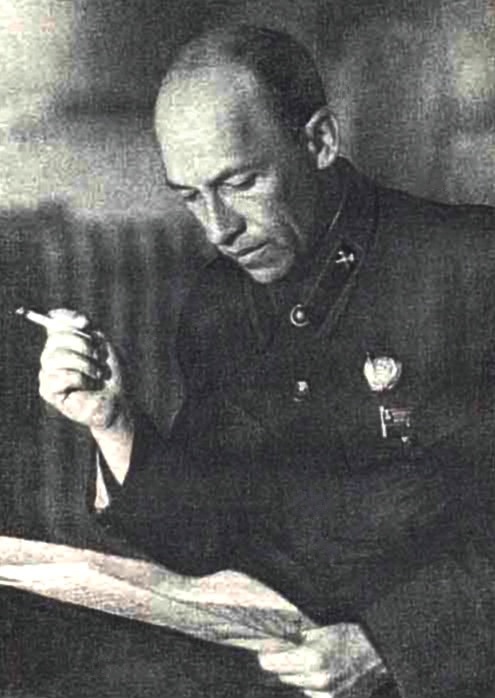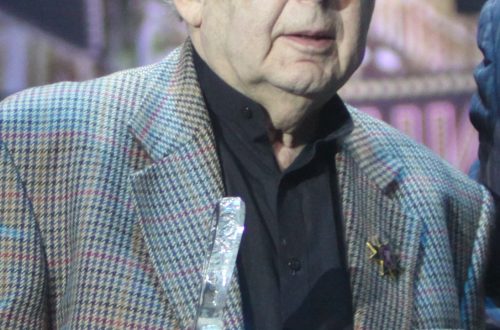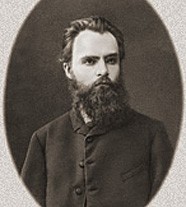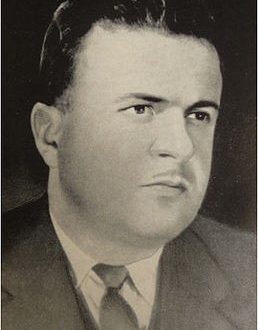
Isaak Osipovich Dunaevsky (Isaak Dunaevsky) |
Contents
Isaac Dunaevsky
… I dedicated my work to youth forever. I can say without exaggeration that when I write a new song or other piece of music, I mentally always address it to our youth. I. Dunayevsky
Dunayevsky’s enormous talent was revealed to the greatest extent in the field of “light” genres. He was the creator of a new Soviet mass song, original jazz music, musical comedy, operetta. The composer sought to fill these genres closest to youth with genuine beauty, subtle grace, and high artistic taste.
Dunaevsky’s creative heritage is very great. He owns 14 operettas, 3 ballets, 2 cantatas, 80 choirs, 80 songs and romances, music for 88 drama performances and 42 films, 43 compositions for variety and 12 for jazz orchestra, 17 melodeclamations, 52 symphonic and 47 piano works.
Dunayevsky was born in the family of an employee. Music accompanied him from an early age. Improvised musical evenings were often held in the Dunaevsky’s house, where, with bated breath, little Isaac was also present. On Sundays, he usually listened to the orchestra in the city garden, and when he returned home, he picked up by ear on the piano the melodies of marches and waltzes that he remembered. A real holiday for the boy were visits to the theater, where Ukrainian and Russian drama and opera troupes performed on tour.
At the age of 8, Dunaevsky began to learn to play the violin. His successes were so striking that already in 1910 he became a student of the Kharkov Musical College in the violin class of Professor K. Gorsky, then I. Ahron, a brilliant violinist, teacher and composer. Dunayevsky also studied with Ahron at the Kharkov Conservatory, from which he graduated in 1919. During his conservatory years, Dunayevsky composed a lot. His composition teacher was S. Bogatyrev.
Since childhood, having passionately fallen in love with the theater, Dunayevsky, without hesitation, came to it after graduating from the conservatory. “The Sinelnikov Drama Theater was rightfully considered the pride of Kharkov,” and its artistic director was “one of the most prominent figures in the Russian theater.”
At first, Dunaevsky worked as a violinist-accompanist in an orchestra, then as a conductor and, finally, as the head of the musical part of the theater. At the same time, he wrote music for all new performances.
In 1924, Dunaevsky moved to Moscow, where for a number of years he worked as the musical director of the Hermitage variety theater. At this time, he writes his first operettas: “Both to ours and yours”, “Grooms”, “Knives”, “Prime Minister’s Career”. But these were only the first steps. Genuine masterpieces of the composer appeared later.
The year 1929 became a milestone in the life of Dunayevsky. A new, mature period of his creative activity began, which brought him well-deserved fame. Dunayevsky was invited by the music director to the Leningrad Music Hall. “With his charm, wit and simplicity, with his high professionalism, he won the sincere love of the entire creative team,” recalled the artist N. Cherkasov.
In the Leningrad Music Hall, L. Utyosov constantly performed with his jazz. So there was a meeting of two wonderful musicians, which turned into a long-term friendship. Dunaevsky immediately became interested in jazz and began to write music for the Utyosov ensemble. He created rhapsodies on popular songs of Soviet composers, on Russian, Ukrainian, Jewish themes, jazz fantasy on the themes of his own songs, etc.
Dunayevsky and Utyosov very often worked together. “I loved these meetings,” Utyosov wrote. – “I was especially fascinated in Dunaevsky by the ability to devote himself entirely to music, not noticing the surroundings.”
In the early 30s. Dunayevsky turns to film music. He becomes the creator of a new genre – musical film comedy. A new, bright period in the development of Soviet mass song, which entered life from the movie screen, is also associated with his name.
In 1934, the film “Merry Fellows” appeared on the screens of the country with Dunaevsky’s music. The film was enthusiastically received by a wide mass audience. “March of the Merry Guys” (Art. V. Lebedev-Kumach) literally marched across the country, went around the whole world and became one of the first international youth songs of our time. And the famous “Kakhovka” from the film “Three Comrades” (1935, art. M. Svetlova)! It was enthusiastically sung by young people during the years of peaceful construction. It was also popular during the Great Patriotic War. The Song of the Motherland from the film Circus (1936, art by V. Lebedev-Kumach) also won worldwide fame. Dunayevsky also wrote a lot of wonderful music for other films: “Children of Captain Grant”, “Seekers of Happiness”, “Goalkeeper”, “Rich Bride”, “Volga-Volga”, “Bright Path”, “Kuban Cossacks”.
Fascinated by work for the cinema, composing popular songs, Dunaevsky did not turn to operetta for several years. He returned to his favorite genre in the late 30s. already a mature master.
During the Great Patriotic War, Dunayevsky led the song and dance ensemble of the Central House of Culture of Railway Workers. Wherever this team performed – in the Volga region, in Central Asia, in the Far East, in the Urals and in Siberia, instilling vigor in the home front workers, confidence in the victory of the Soviet Army over the enemy. At the same time, Dunayevsky wrote courageous, harsh songs that gained popularity at the front.
Finally, the last salvos of the war rang out. The country was healing its wounds. And in the West, the smell of gunpowder again.
During these years, the struggle for peace has become the main goal of all people of good will. Dunayevsky, like many other artists, was actively involved in the struggle for peace. On August 29, 1947, his operetta “Free Wind” was held with great success at the Moscow Operetta Theater. The theme of the struggle for peace is also embodied in the documentary film with music by Dunaevsky “We are for peace” (1951). A wonderfully lyrical song from this film, “Fly, doves,” gained worldwide fame. It became the emblem of the VI World Youth Festival in Moscow.
Dunaevsky’s last work, the operetta White Acacia (1955), is an excellent example of Soviet lyrical operetta. With what enthusiasm the composer wrote his “swan song”, which he never had to “sing out”! Death knocked him down in the midst of his work. Composer K. Molchanov completed the operetta according to sketches left by Dunayevsky.
The premiere of “White Acacia” took place on November 15, 1955 in Moscow. It was staged by the Odessa Theater of Musical Comedy. “And it’s sad to think,” wrote the chief director of the theater I. Grinshpun, “that Isaak Osipovich did not see the White Acacia on the stage, could not be a witness to the joy that he gave both the actors and the audience … But he was an artist human joy!
M. Komissarskaya
Compositions:
ballets – Rest of a Faun (1924), children’s ballet Murzilka (1924), City (1924), Ballet Suite (1929); operetta – Both ours and yours (1924, post. 1927, Moscow Theater of Musical Buffoonery), Bridegrooms (1926, post. 1927, Moscow Operetta Theater), Straw Hat (1927, Musical Theater named after V. I. Nemirovich-Danchenko, Moscow; 2nd edition 1938, Moscow Operetta Theatre), Knives (1928, Moscow Satire Theatre), Premiere Career (1929, Tashkent Operetta Theatre), Polar Growths (1929, Moscow Operetta Theatre), Million Torments (1932, ibid. ), Golden Valley (1938, ibid.; 2nd edition 1955, ibid.), Roads to Happiness (1941, Leningrad Theater of Musical Comedy), Free Wind (1947, Moscow Operetta Theater), Son of a Clown (original name . – The Flying Clown, 1960, ibid), White Acacia (instrumentation by G. Cherny, insert ballet number “Palmushka” and Larisa’s song in the 3rd act were written by KB Molchanov on the themes of Dunaevsky; 1955, ibid.); cantatas – We will come (1945), Leningrad, we are with you (1945); music for films – First platoon (1933), Twice-born (1934), Merry guys (1934), Golden lights (1934), Three comrades (1935), The path of the ship (1935), Daughter of the Motherland (1936), Brother (1936), Circus ( 1936), A Girl in a Hurry on a Date (1936), Children of Captain Grant (1936), Seekers of Happiness (1936), Fair Wind (with BM Bogdanov-Berezovsky, 1936), Beethoven Concerto (1937), Rich Bride (1937), Volga-Volga (1938), Bright way (1940), My love (1940), New house (1946), Spring (1947), Kuban Cossacks (1949), Stadium (1949), Mashenka’s concert (1949), We are for the world (1951), Winged Defense (1953), Substitute (1954), Jolly Stars (1954), Test of Loyalty (1954); songs, incl. Far Path (lyrics by EA Dolmatovsky, 1938), Heroes of Khasan (lyrics by V.I. Lebedev-Kumach, 1939), On the enemy, for the Motherland, forward (lyrics by Lebedev-Kumach, 1941), My Moscow (lyrics and Lisyansky and S. Agranyan, 1942), Military March of the Railway Workers (lyrics by SA Vasiliev, 1944), I went from Berlin (lyrics by L. I. Oshanin, 1945), Song about Moscow (lyrics by B. Vinnikov, 1946) , Ways-roads (lyrics by S. Ya. Alymov, 1947), I am an old mother from Rouen (lyrics by G. Rublev, 1949), Song of the youth (lyrics by M. L. Matusovsky, 1951), School waltz (lyrics. Matusovsky, 1952), Waltz Evening (lyrics by Matusovsky, 1953), Moscow Lights (lyrics by Matusovsky, 1954) and others; music for drama performances, radio shows; pop music, incl. theatrical jazz review Music Store (1932), etc.





